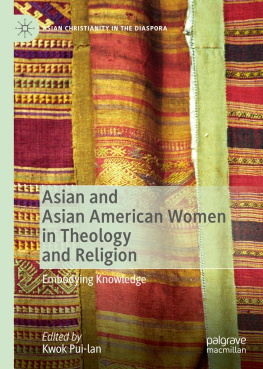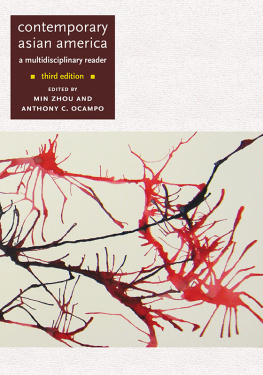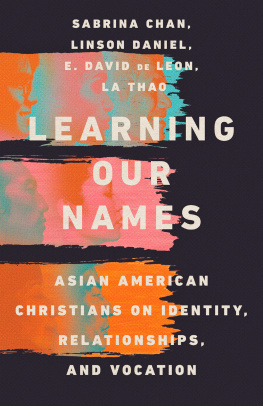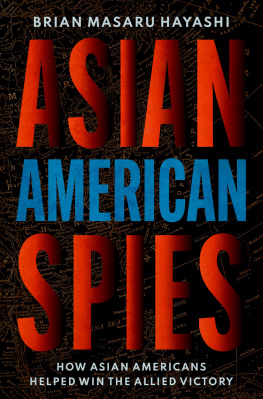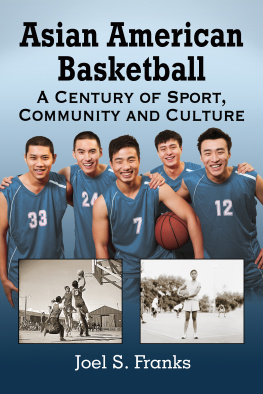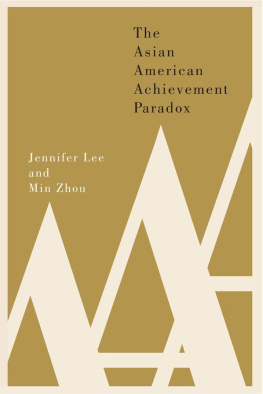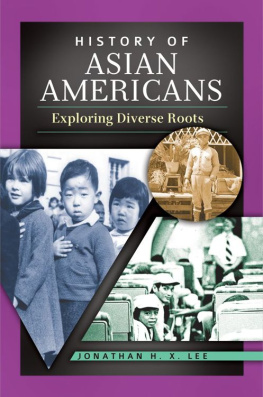Thank you for buying this ebook, published by NYU Press.
Sign up for our e-newsletters to receive information about forthcoming books, special discounts, and more!
Sign Up!
About NYU Press
A publisher of original scholarship since its founding in 1916, New York University Press Produces more than 100 new books each year, with a backlist of 3,000 titles in print. Working across the humanities and social sciences, NYU Press has award-winning lists in sociology, law, cultural and American studies, religion, American history, anthropology, politics, criminology, media and communication, literary studies, and psychology.
Gods New Whiz Kids?
Acknowledgments
There are many people to thank. I am grateful to the various unnamed students, pastors, staff, and administrators who welcomed me into their fellowships and made my research possible. I thank my mentors Min Zhou, Roger Waldinger, and John Evans, as well as various scholars including Russell Jeung, Antony Alumkal, Pyong Gap Min, and Stephen Warner, whose works have shaped my thoughts and writings on the second generation. The support of various organizations and institutions including the Louisville Institute, the Society for the Scientific Study of Religion, the LeRoy Neiman Center for the Study of American Society and Culture (UCLA), and the Institute for American Culture and the Asian American Studies (UCLA) have also been invaluable. Finally, I express much thanks to my dear parents, husband, and friends for their continued love, encouragement, and faith.
Introduction
At lunchtime, one need only walk into Berkeleys Sproul Plaza, that famed arena of leftist politics, to note the transformation: where a salvo of free speech and anti-war slogans could once be heard, mantras of religious recruitment now drown out all sounds of protest. Pamphlets promising salvation, karaoke and full immersion baptism, all in the same night, are proffered eagerly by members of the Evangelical Formosan Church, the Asian American Christian Fellowship and the Chinese Graduate Christian Society.
Carrie Chang, Amen. Pass the Kimchee, 2000
Whether studying the Bible at Berkeley, engaging in feverish prayer at Harvard, or singing praise at Yale, Asian American Christian fellowships have become a familiar sight at many of the top colleges and universities across the country. Today, there are more than fifty Evangelical Christian groups at the University of California (UC) at Berkeley and the University of California at Los Angeles (UCLA), and 80 percent of their members are Asian American (Busto 1996; Chang 2000; Hong 2000). On the East Coast, one out of four Evangelical college students at New York City colleges and universities are Asian American (Carnes and Yang 2004).
At Harvard, Asian Americans constitute 70 percent of the Harvard Radcliffe Christian Fellowship, and, given the popularity of Evangelical Christian fellowships, one can easily spot students who proudly don T-shirts with phrases like the Asian Awakening (Chang 2000: 1). At Yale, the Campus Crusade for Christ is now 90 percent Asian, which is astonishing considering that twenty years ago it was 100 percent white. Like Yale, Stanfords InterVarsity Christian Fellowship (IVCF) has become almost entirely Asian (Chang 2000). Moreover, the growth in the number of Asian American Evangelicals is obvious at other IVCF chapters in the nation.
Not surprisingly, the percentage of Asian Americans at InterVarsity chapters on some West Coast and Northeast campuses and throughout parts of the Midwest is often as high as 80 percent. Up until the 1990s, IVCFs triennial missions convention, Urbana, was predominately white. In 2000, however, it was 26 percent Asian American (Tokunaga 2003: 167). The ten largest InterVarsity chapters with a high percentage of Asian Americans include Cornell, Northwestern, Rutgers, University of IllinoisChicago, Boston University, University of Michigan, Emory, University of Washington, Harvard, and the Massachusetts Institute of Technology.
Among the growing Asian American campus fellowships, second-generation Korean American (hereafter, SGKA) fellowships are the most visible, particularly on the West and East Coasts. For example, UCLA alone boasts of more than ten Korean American Christian fellowships. The growth of Korean American campus fellowships, however, is not restricted to the coasts; virtually every top-ranking university and college across the country has at least one Korean American campus fellowship. SGKA Evangelicals and their Christian fellowships not only embody but also constitute a major part of the surge of Asian American Evangelicals on elite campuses in the United States.
This book investigates this newly emerging phenomenon. Focusing on SGKA Evangelicals, it looks at the growing numbers of Asian American Evangelicals and their ethnic campus ministries. Specifically, it examines why Americanized SGKA Evangelicals from middle-class, largely white, suburban neighborhoods on a campus with a host of ethnically diverse religious organizations are flocking to separate ethnic campus ministries. The book explores this paradox: ethnic religious organizations have shed most of the practices and rituals of their ethnic community and embrace dominant, white Evangelical practices and rituals, yet they resist assimilation and maintain ethnic segregation.
Asian American College Evangelicals
The majority of Asian American college Evangelicals are U.S.-born Korean Americans and Chinese Americans, both of whom largely come
By the second generation, most Asian Americans lose fluency in their parents native language and speak only English. Asian Americans also intermarry extensively with whites, and more than 25 percent of Asian Americans have a partner of a different racial background (Lee and Bean 2003, 2004). Furthermore, leaders in the Evangelical Christian community have eagerly labeled Asian Americans as the moral model minority, as Gods new whiz kidswho excel not only in school, but in faith (Busto 1996): Not only are they smart, hardworking, and graduating from prestigious universities, but they are godly as well! (Jeung 2005: 5). They have become the icons of active, if not aggressive, campus Evangelicalsto which other Evangelicals should aspire.
Despite their socioeconomic status, acculturation, and entre into mainstream institutions, SGKA and other Asian American Evangelicals are flocking to separate ethnic campus ministries over multiethnic or predominately white Evangelical organizations. This pattern conflicts with assimilation theories that expect ethnic identification to decline, not increase, with socioeconomic mobility and entrance into mainstream institutions and organizations (Alba and Nee 1996; Gans 1992; Gordon 1964; Park 1950). Why would young Asian American adults who have grown up in white or racially mixed communities choose to affiliate themselves with ethnically separate ministries on campus?



